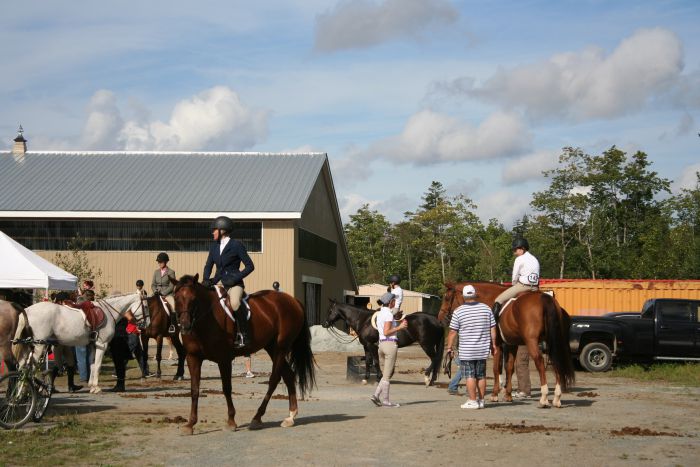KJIPUKTUK (Halifax) – Lucasville is a small community between Lower Sackville and Hammonds Plains. Many of its residents have been fighting the presence of a horse farm that they say stinks up the neighborhood and threatens to contaminate ground water. The Nova Scotia Advocate reported on the latest developments in their ongoing fight a week ago.
Earlier this week the CBC tackled the same story. As always, the CBC did a great job reporting on the issue, talking to all parties involved, and allowing the readers to draw their own conclusions.
Except for one thing. Lucasville is a historic African Nova Scotian community, but you wouldn’t know it from reading the CBC report. Not everybody who lives in Lucasville is Black of course, but many people are, and the community was founded by Black loyalists.

Many of the residents I have spoken with over the years believe that this is an important piece of the puzzle when you want to understand what is happening here.
“It’s not just the farm issue, it’s about everything that is being dumped here in our community with its long Black history. They do the same thing to Indigenous communities, to poor communities, and we’re speaking out,” Iris Drummond, chair of the Lucasville Community Association, told me a week ago.
Drummond made the same points when talking to the CBC, she writes on Facebook. “It definitely was stressed upon in the interview that this was a historical black community and that our communities are tried of being dumped upon.”
The invitation to attend tomorrow’s Nova Scotia Farm Practices Board meeting issued by the Lucasville Community concludes as follows: “Lucasville is a beautiful community and we are proud of it’s historical place in history, We will not let environmental racism destroy what our ancestors built. It is time to say no.”
Many studies point to a disproportionate location of landfills and other environmental hazards close to racially marginalized communities.
Lincolnville, Sunnyville, Upper Tracadie, North Preston, East Preston, Cherry Brook, Lake Loon, Acadia First Nation, Membertou, Eskasoni, Indian Brook, Beechville.
These are all communities in Nova Scotia with two things in common. Toxic industries, landfills and waste dumps are situated close to where people live, and the population is predominantly African-Nova Scotian or Mi’kmaw.
Add Lucasville to that list of communities as well, many residents say.
Too bad the CBC decided to omit that information.
If you can, please support the Nova Scotia Advocate so that it can continue to cover issues such as poverty, racism, exclusion, workers’ rights and the environment in Nova Scotia. A pay wall is not an option since it would exclude many readers who don’t have any disposable income at all. We rely entirely on one-time donations and a tiny but mighty group of kindhearted monthly sustainers.




There are plenty of other places for a horse farm. Why do some people infringe where they are going to affect other people negatively. Clean ground water is important no matter who it affects.